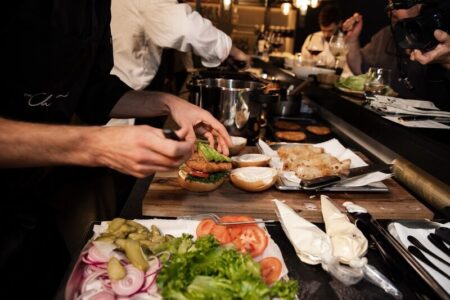Innovate UK backs Campden BRI and Cellular Agriculture with funding for cultivated meat project

Right: Illtud Dunsford, CEO of Cellular Agriculture.
Campden BRI and innovative tissue engineering and bioreactor specialist, Cellular Agriculture have won funding for a project that aims to optimise, test and validate the scalability of hollow-fibre bioreactors to produce cultivated meat products.
The grant from Innovate UK and the Biotechnology and Biological Sciences Research Council (BBSRC) is part of a £15.6 million investment in 32 projects within novel low-emission food production systems.
Building on proof-of-concept work led by Cellular Agriculture (whose lead investor is Hilton Foods Group), the project aims to develop a hollow-fibre bioreactor system prototype demonstrator that will be optimised at Campden BRI’s facilities. Campden BRI will then collaborate with Cellular Agriculture to test production samples and develop food safety, quality, regulatory, economic and sustainability assessments. The knowledge acquired during the project will also be used by Campden BRI in the form of e-learning courses and supporting services.
Commenting on the funding, Illtud Dunsford, CEO of Cellular Agriculture said: “Cultivated meat production represents an opportunity to provide a complementary system to traditional farming methods. With the Earth’s resources limited, a holistic approach is needed for the choice of methods to produce high quality protein to meet the growing demand of the global population. Cultivated meat offers an opportunity which utilises less land and water than traditional agricultural production.”
Craig Leadley, technology fellow at Campden BRI added: “By supporting Cellular Agriculture in taking their cutting-edge cultivated meat production system from the biotechnology space into the food industry, this exciting project puts us at the forefront of innovative food research. The Innovate UK-funded project will enable us to support Cellular Agriculture to further develop and test their system so that they can commercialise their technology to food manufacturers and cultivated meat companies.”
Marianne Ellis, CTO of Cellular Agriculture also added: “The cultivated meat industry is still in early stages and although processes have been tested and validated, scaling the technology at low-cost remains a challenge. However, hollow-fibre bioreactors have increased cell density and cost-efficiency, lower emissions, and more compact design compared to other state-of-the-art bioreactors, such as stirred tank or fixed-bed bioreactors. These advantages give hollow-fibre bioreactor systems the potential to facilitate the commercial viability of cultivated meat production.”
This is not the first project for which Cellular Agriculture, which has recently opened a new purpose built R&D facility in Corsham, has collaborated with Campden BRI. Both were involved in a ‘cellular agriculture in space feasibility study’ funded by The European Space Agency and led by Kayser Space.
Another project, led by Professor Tom MacMillan from the Royal Agricultural University, is called “Cultured meat: a threat or opportunity for UK farmers”, both companies are again involved as the project brings together agriculture experts and farming groups to look at the potential impact on the farming community of this potentially transformative technology.



